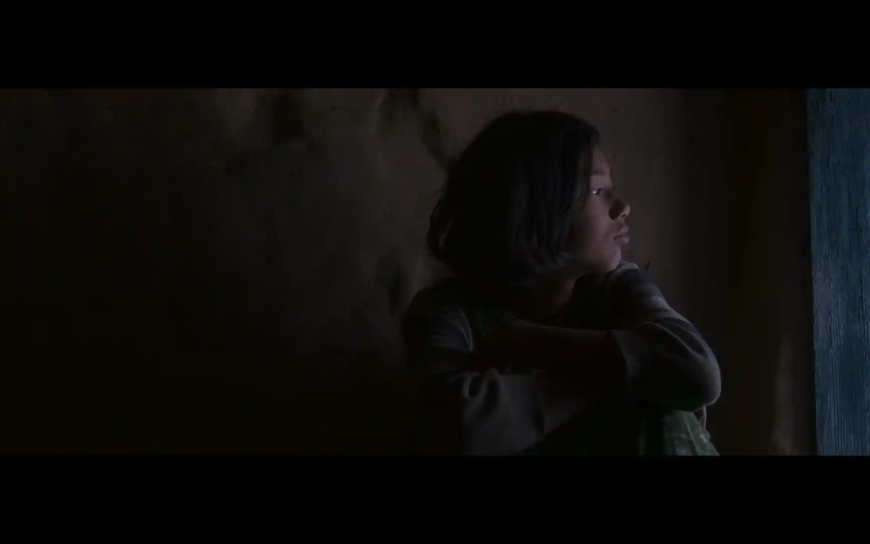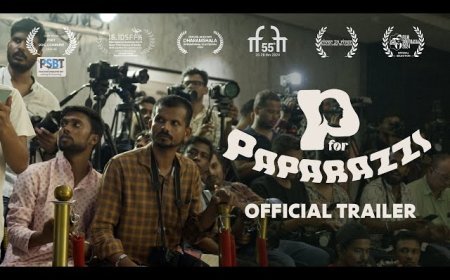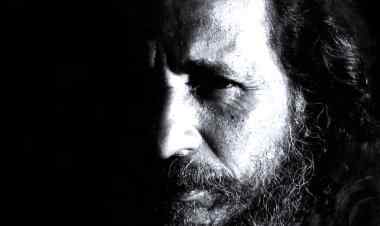Interview: Tarun Jain
Dipankar Sarkar Provides an interview with Tarun Jain on his latest short film Ballad of the Mountain

Tarun Jain's latest short film Ballad of the Mountain narrates the story of a young tribal girl from the hills of Uttarakhand, who is bullied by her schoolmates and discriminated against by her teacher for being from a low caste. Despite the hostile atmosphere surrounding her, she is able to give in to her dreams, and the dream becomes the anchor for survival in a world drowned in biases.
Ballad of the Mountain is screened at MAMI Mumbai Film Festival (19-24 October 2024).
In this interview, Jain speaks of his thematic choices, comments on the ills of caste, and explains the motive behind making the film.
How did you come up with the idea for the film?
I drew deep inspiration from a close friend and her relationship with her sister. She was like a mother figure to her, and when I met her sister, I could feel the profound ̣bond, the love, and the care they shared. It was incredibly moving. But the backdrop of the story came from my visits to Uttarakhand, where I witnessed firsthand the impact of the caste system. Some of the experiences were truly shocking—it felt almost primitive, yet it’s a reality that this beautiful valley holds. While the landscape is breathtaking, I wanted to show the contrast between its outward beauty and the harsh challenges faced by those from lower castes. That contrast is what I really wanted to capture.
Your previous short film Kaala was inspired by the racial tensions faced by Africans in Delhi during 2016 and 2017, while Ballad of the Mountain tells the story of a young girl bullied for being an outcast. Both films explore themes of marginalisation and societal rejection. As a filmmaker, what draws you to these stories?
What draws me to these stories is the deeper truth they reveal about our society. My connection to them comes from my lived experiences—as a citizen, a friend, a filmmaker, and sometimes just as an observer. I’ve always been drawn to the realities faced by marginalised communities and how different their lives could have been, had they been in a better situation or at a different time.
These stories reflect how we, as a society, often find ways to make people feel unworthy, but they also show how adversity can bring out incredible strength. In Ballad of the Mountain, the protagonist chooses to return to school and confront the bullies, showing resilience and courage. In contrast, Byran from Kaala may never be the same again after what he endures.
These narratives are deeply personal, inspired by people I’ve met and stories I’ve heard. It’s never easy to tell such stories, but they are a reflection of the harsh truths we often overlook or try to hide.
The story of the film centres around the struggle of the young girl. What was the reason to include the character of the child, Kabu?
Kabu is her sanctuary, her safe and happy place, no matter what the day brings. Sharing that simple piece of bun with him seems to make everything right again. She knows Kabu will never judge her for sharing the story of a girl who dreams of flying—a reflection of her own secret desires. In a way, Kabu is also her mentor, playfully nudging her to try again by passing her the torn book, making her redo the homework. Sometimes, all you need is someone to listen, and for her, Kabu is that comforting presence.
You’ve adapted a creative style, where whenever the girl speaks to Kaku, she is shown in a long shot. What is the significance behind this choice?
This story unfolds in a dreamy setting that contrasts sharply with Diya’s reality. To capture the intimacy of the journey, especially as they navigate the challenging terrain, we chose this particular style to bring the locations to life.
What is the role of the paper rocket in her life?
The paper plane symbolises the start of her dreams, something she returns to again and again, unaware of how it will one day help her achieve her aspirations. It’s also one of the earliest things that bears proof of her dreams she holds close to her heart.
What do you hope audiences take away from Ballad of the Mountain?
No one can take away your dream. It may be delayed, but if you’re determined to pursue it, it remains yours. This story is a true testament to resilience and the courage to change one's fate. We don’t know if this girl will ever become an astronaut, but what we do know is that if she puts her heart and mind into it, she has the potential to achieve far more than many of her peers. While this isn’t a children’s film, I truly hope that children get the chance to watch it and discover the strength within themselves. Every journey starts small, and it begins right here.
*****
What's Your Reaction?

































































